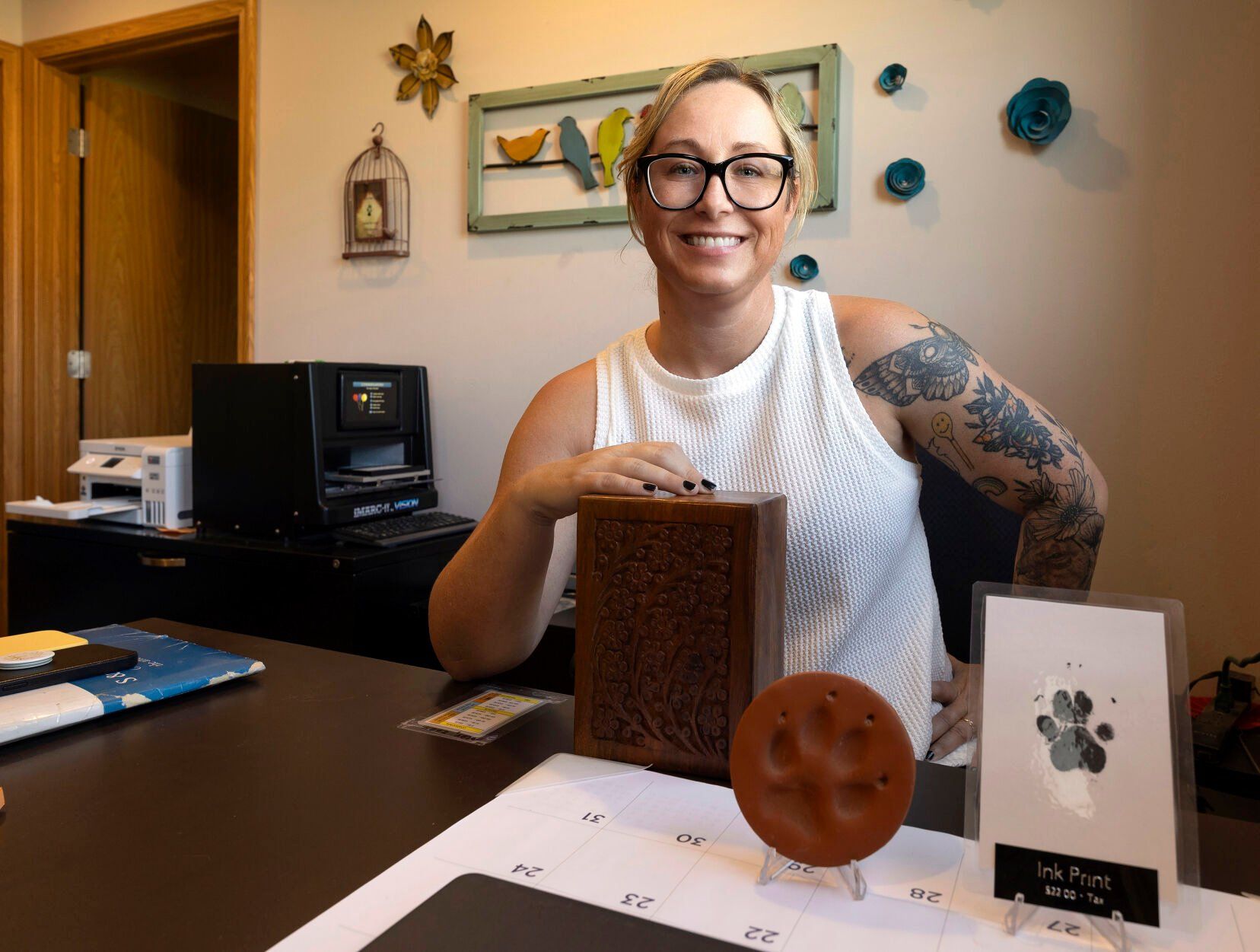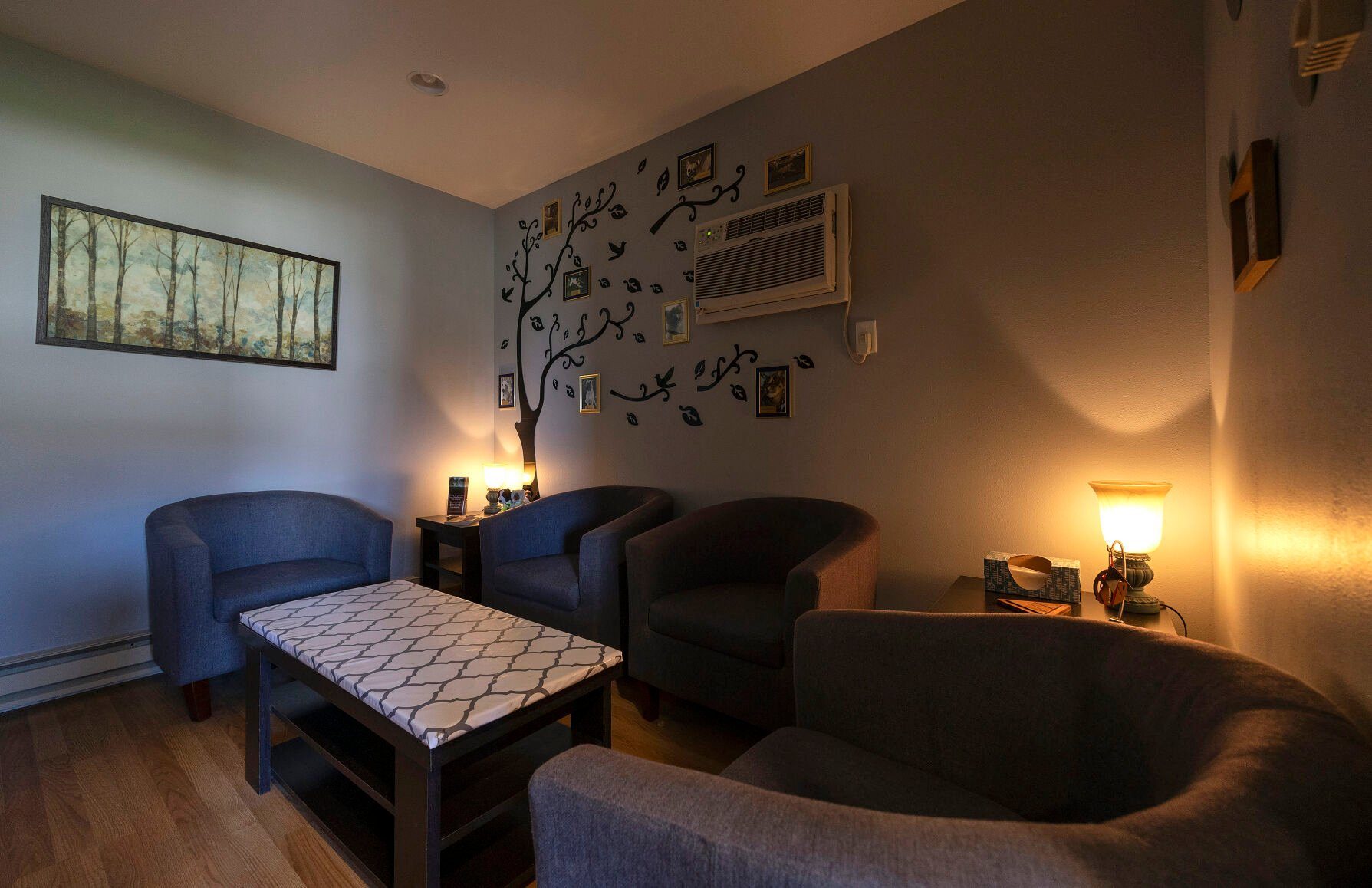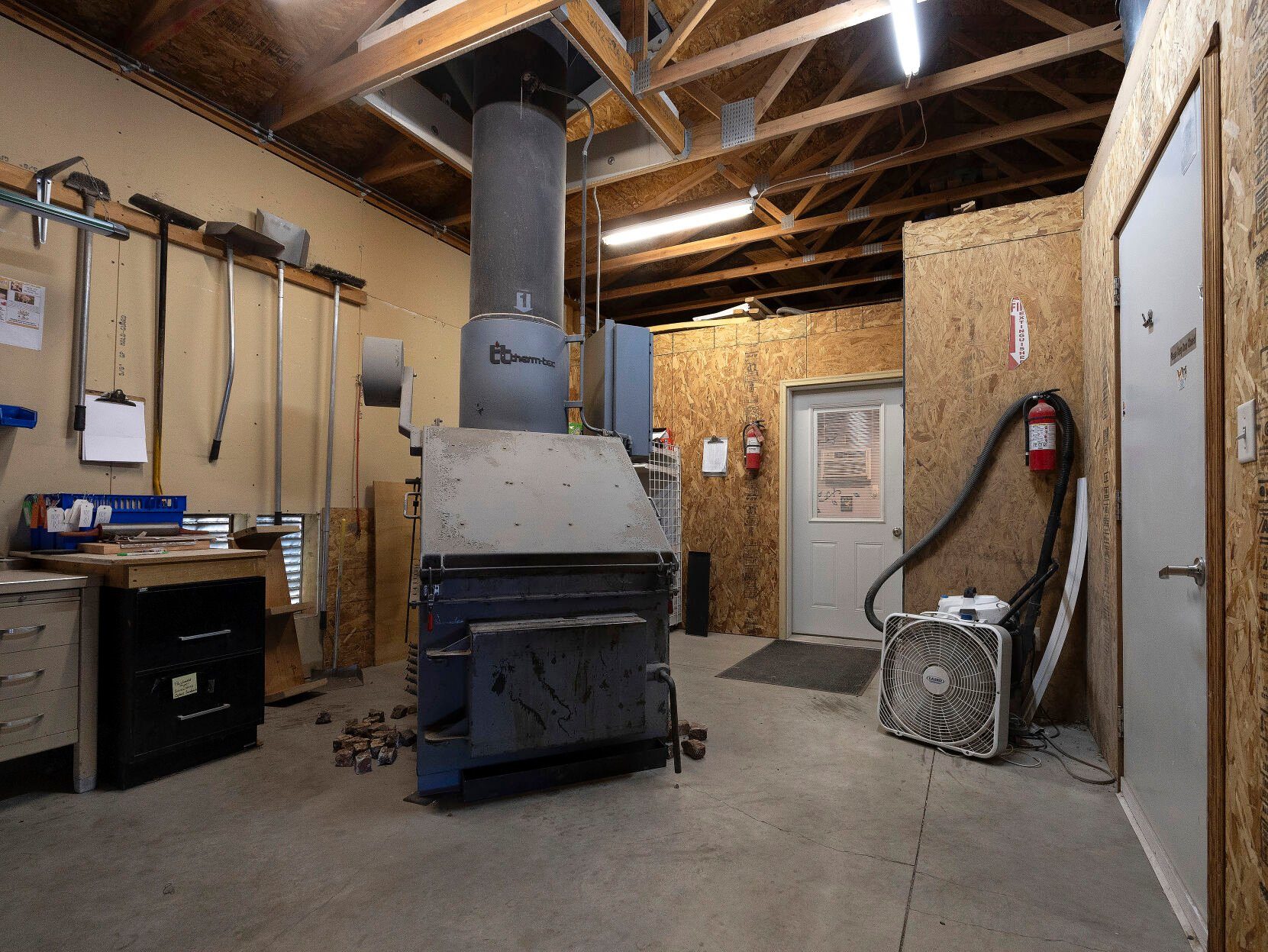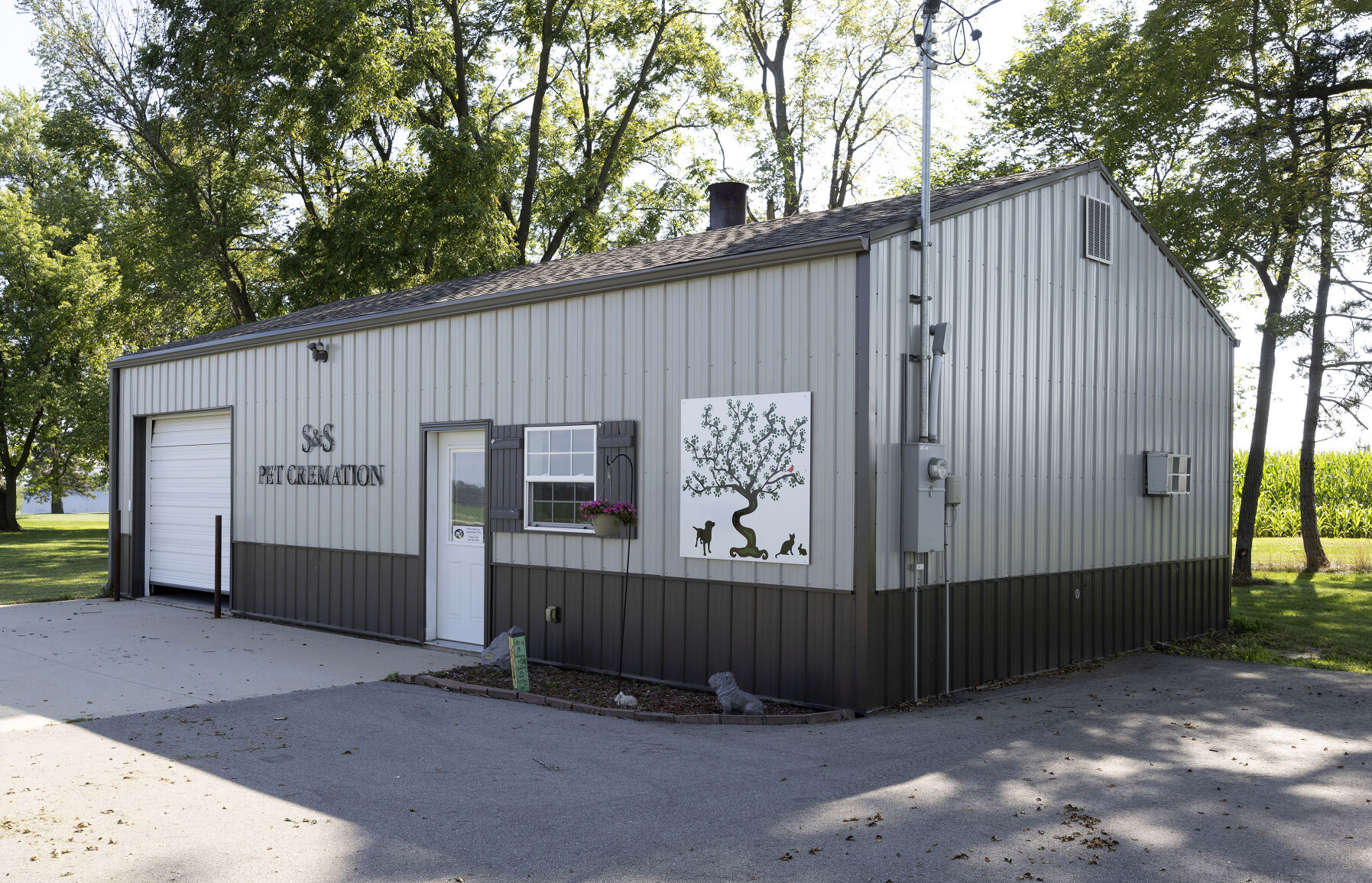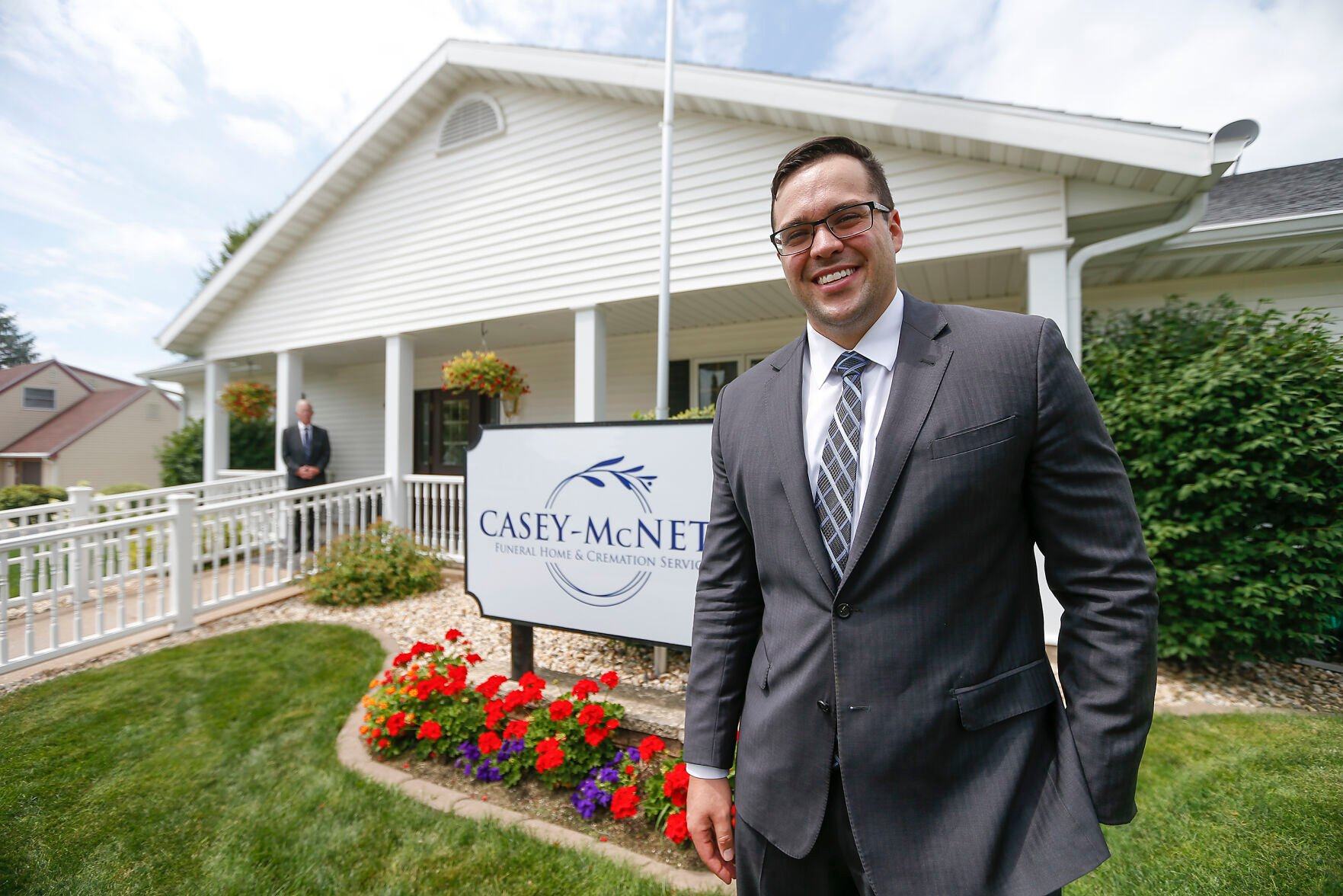CUBA CITY, Wis. — As a funeral home director, Mitchell McNett spends a lot of time thinking and talking about death.
But that didn’t make it any easier when he was faced with the possible loss of one of his closest friends: his Australian shepherd, Ottis.
Several months ago, Ottis contracted meningitis, and things weren’t looking good. McNett was faced with death planning for the smallest, furriest member of his family, and when he found a lack of local options in southwest Wisconsin, it got him thinking.
“I was talking to my vet, and I asked about who they work with for pet cremations and learned that it was 93 miles away,” he said. “I started thinking about it, and the next time I went in I asked if someone did it more locally if they’d go for it and they said ‘absolutely.’”
So McNett, owner of Casey-McNett Funeral Home and Cremation Services in Cuba City, began the work to open his own pet cremation business. He opened McNett Pet Cremation in July after several months of planning, equipment purchases and a turnaround recovery on Ottis’s part.
McNett now offers pet owners from across the tri-state area a variety of cremation and memorial options. He typically works directly with veterinary clinics, although he also does some work directly with owners in the wake of their pet’s passing.
“I think I always knew this was something I wanted to get into, but it took a little time to get there,” he said. “Me as a person, I’m not why they come here, but hopefully I can be the reason they walk away in a little bit of a better place.”
McNett is one of a handful of individuals across the tri-state area who provides pet cremation services, which is often a sorrowful but necessary process after the death of an animal. It’s a relatively small field, but one that has broad and long-lasting impacts for area pet owners.
“We like to say that one of the best and worst things about pets is that they don’t live as long as us,” said S&S Pet Cremation co-owner Megan Schmitt. “You take a pet into your home, and for them, you are their whole world, and that’s something that’s very special and worth honoring.”
S&S Pet Cremation started nine years ago in Centralia, Iowa, after the passing of Schmitt’s family dog, Addison. Schmitt said the 13-year-old boxer was like a first child to her and her husband, Jared, and their human children had never known life without him.
After Addison’s passing, the family chose to have him cremated, and it was several weeks before they received the remains.
“It just kind of felt like it interrupted the grieving process,” Schmitt said. “We all started to find some closure and then when we got the remains back a few weeks later, it was like all that pain and emotion came rushing back.”
Megan and Jared discussed that feeling later and wondered if there was a better way to provide pet cremation in an efficient, empathetic way. They opened S&S Pet Cremation shortly after alongside Jared’s parents, Ken and Carol, as well as Terry and Maureen Waskow.
Most of the pets coming to S&S come from vet clinics, Schmitt said, which act as an intermediary between grieving families and the business. S&S also receives some walk-in clients, however, and the facility is equipped with a bereavement room for pet owners to say goodbye one last time.
Instead of weeks, Schmitt said the goal is to return pets’ ashes to families within three to five days.
“Everyone’s grief is individual, so we wanted to make sure we gave them the opportunity to have the time and space they need to work through that process,” Schmitt said. “When people are going through their worst moments, we try to make it a little better.”
When families decide to cremate a pet, there often are a few additional decisions that need to be made.
First, owners must decide if they want an individual or communal cremation. Individual cremation means pets are placed into the cremation chamber individually to allow families to receive their pet’s ashes back.
Pet cremation chambers are similar to those used for humans, Schmitt said, but smaller.
Communal cremation occurs when pets are placed into the cremation chamber alongside other animals. It’s often a cheaper option, and owners typically do not receive any remains back afterward.
“For us, we process communal cremation just like we would for an individual or private cremation and then we spread the ashes on a private family acreage,” Schmitt said. “Even if the owner doesn’t want those ashes back for some reason, we still want to honor that it’s someone’s pet that was loved.”
In addition to the ashes, clients can also choose from a variety of items to memorialize their pet.
At S&S Pet Cremation and McNett Pet Cremation, families can request a clay paw print or ink nose print from their animal. Urns also can be personalized, and a small portion of the ashes can be placed in jewelry that owners can keep on their person.
Dubuque veterinarian Mackenzie Hellert said such mementos can be helpful for pet owners in the days and months after the loss of a pet. She often engages with owners who just lost a pet as part of the euthanasia process and said many owners want something tangible with which to remember their pet.
“When a person dies, they have a bedroom and clothes and little things they’ve collected over the years,” Hellert said. “With pets, there’s not as many things like that so having a paw print or something to hold onto can be very helpful (after a pet’s loss).”
Ultimately, those involved in the industry say there’s no wrong way to mourn a pet. McNett said all options are presented to help owners find what works best for them after a pet’s passing, but that what they choose is ultimately up to them.
“The goal is to find a way to get a little comfort,” he said. “You see that a lot after a loss where people feel a weight on their shoulders, and getting the ashes back or getting (a keepsake) often means some of that weight comes off.”


